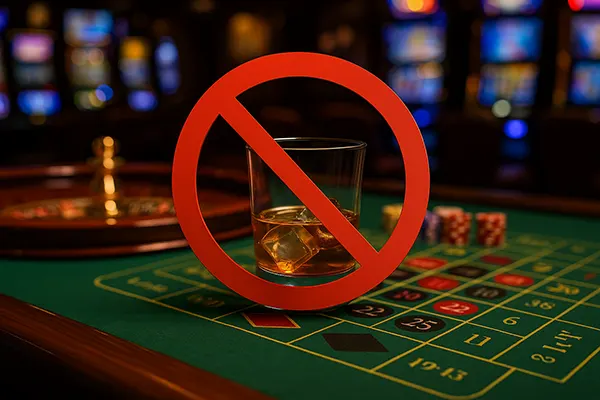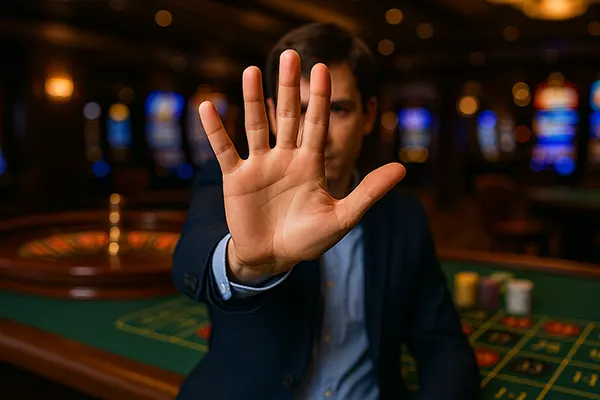
Countries Where Alcohol Is Banned in Casinos: The Global Picture in 2025
While many associate casinos with flashing lights, spinning roulette wheels, and flowing drinks, this is far from the reality in some parts of the world. In 2025, a number of countries have adopted strict alcohol bans within gambling venues as part of broader health or religious policies. These rules vary by jurisdiction but are often implemented to encourage responsible gambling, reduce violence, and comply with cultural norms.
Alcohol-Free Casinos: A Growing Global Trend
Some nations impose alcohol restrictions in casinos due to religious beliefs or legal traditions. In Islamic countries such as Saudi Arabia, Qatar, and Kuwait, not only is gambling itself banned, but the possession or sale of alcohol is also strictly prohibited. These restrictions stem from Islamic law, which forbids both intoxicants and games of chance.
Even in countries where gambling is permitted, such as the United Arab Emirates (particularly in Ras Al Khaimah, where casino resorts are planned), strict alcohol controls remain in place. Alcohol may be available in designated hotel bars, but it is often separated entirely from gambling areas and is not served on gaming floors.
Similarly, in India, while casinos operate legally in states like Goa and Sikkim, alcohol consumption is tightly regulated. In Goa, casinos situated on riverboats are technically allowed to serve alcohol, but this is subject to specific licensing conditions. Meanwhile, in the state of Gujarat, where alcohol is entirely banned, casinos are non-existent due to both legal and religious constraints.
Casino Licensing and Alcohol Regulation: Local Laws Matter
Licensing rules are one of the primary tools used by governments to restrict or prohibit alcohol sales in gambling venues. In Norway, for instance, the only legal gambling operator—Norsk Tipping—is state-controlled, and its few land-based gambling facilities do not permit alcohol sales. This aligns with the country’s long-standing efforts to minimise addiction-related harm.
In the United States, alcohol regulation in casinos varies drastically from state to state. In Utah, where gambling is illegal altogether, alcohol laws are also some of the strictest in the country. On the other hand, in Pennsylvania, casinos are permitted to serve alcohol 24/7, showing how policies can differ even within the same nation.
Meanwhile, in Cambodia, where casino tourism is significant, local patrons are banned from entering gambling halls altogether, and alcohol sales are restricted during public holidays and election periods. These temporary bans are designed to promote public order and safety.
Public Health and Responsible Gambling Initiatives
In many jurisdictions, limiting alcohol consumption in casinos is seen as part of a broader responsible gambling strategy. Studies have linked alcohol use to impaired judgment and increased risk-taking, both of which can exacerbate gambling-related harm. As such, countries like Sweden and Finland impose significant restrictions on alcohol sales in gambling venues.
Sweden’s land-based gambling establishments, operated under the brand Casino Cosmopol, do not allow intoxicated individuals to enter or remain on the premises. Staff are trained to monitor guests and refuse alcohol service when necessary, while strict rules apply regarding advertising and promotions of alcoholic beverages within casino properties.
In Finland, where Veikkaus holds a monopoly on gambling operations, alcohol is not served at gaming arcades. This policy reinforces the state’s commitment to minimising harm and promoting safer gambling environments. Public health experts in the region have supported these measures, citing reductions in incidents of violence and alcohol-related disturbances in casinos.
The Role of Research and Policy Making
Governments often consult academic research before implementing or adjusting alcohol bans in gambling environments. A 2023 EU-funded study on gambling and substance abuse highlighted the correlation between heavy drinking and longer gambling sessions, particularly among male players aged 25–45. These findings have influenced policy decisions across European countries.
In Canada, some provinces such as Quebec have adopted partial restrictions, including banning “happy hour” discounts within casinos and limiting the number of drinks served per hour. While alcohol is still available, the approach prioritises player safety over profit.
Singapore has also imposed a tightly regulated system, where alcohol can only be purchased in designated bars and restaurants within the integrated resort complex. Casino floors are exempt from alcohol service, reinforcing the country’s emphasis on orderliness and discipline.

Cultural Norms and Religious Considerations
Cultural and religious factors continue to shape how countries view alcohol consumption in gambling settings. In Japan, where casinos were legalised under the Integrated Resort Implementation Act, alcohol is available but with restrictions. Casino operators are required to follow local ordinances that limit operating hours for alcohol service and enforce sobriety checks.
In contrast, Buddhist-majority countries like Thailand and Myanmar maintain strong social taboos against both gambling and alcohol. As of 2025, casinos are illegal in Thailand, and public alcohol consumption is restricted during major religious festivals. Myanmar allows some forms of gambling, but alcohol bans are frequently implemented in casino-adjacent areas.
Even in Israel, where gambling is not legalised at the national level, alcohol control plays a role in enforcement. While underground gambling operations do exist, they are typically unlicensed and serve alcohol without regulatory oversight, creating additional risks for problem gambling and social disorder.
What This Means for Tourists and Travellers
Travellers planning to visit casinos abroad should be aware of local laws and customs regarding alcohol. In countries with strict bans, such as Saudi Arabia or Brunei, attempting to bring alcohol into the country can result in severe penalties, including imprisonment. Even in more permissive jurisdictions, alcohol service may be limited during certain times of year or public events.
Tourists should also be mindful of their own behaviour in foreign casinos. Appearing intoxicated at the entrance may result in being denied entry, especially in nations where casino operators are obligated to enforce sobriety policies. Being respectful of local regulations ensures a safer and smoother experience for all involved.
Ultimately, while many associate casino visits with drinks and entertainment, this perception does not apply universally. Understanding and respecting alcohol policies in each destination is essential not only for compliance but for supporting responsible tourism and public safety.
